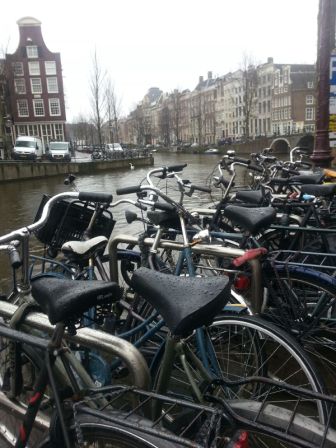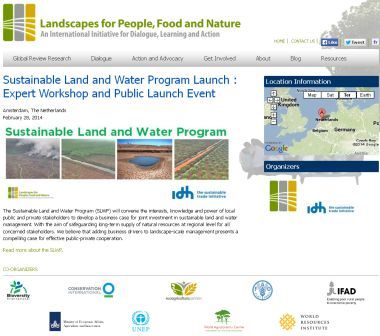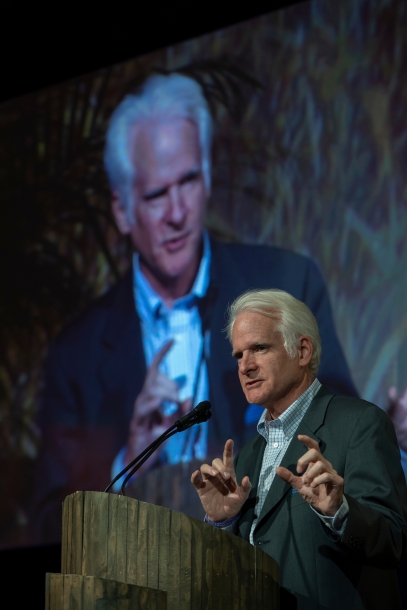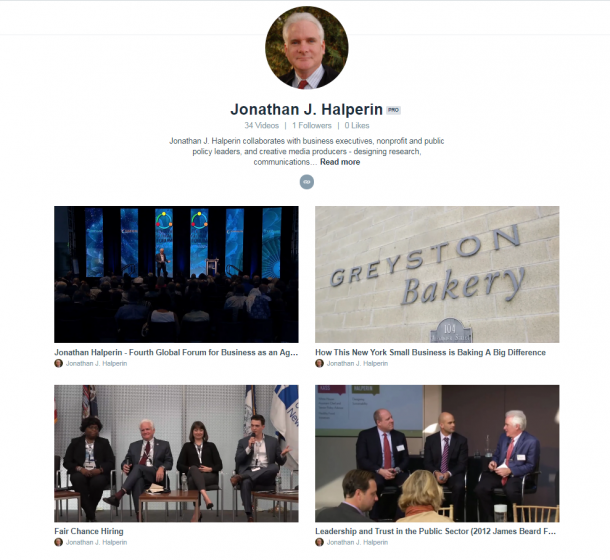You are here
Risks over Time
Since participating recently in the UN Investor Summit on Climate Risk, and in preparing for the Sustainable Land & Water Program Expert Workshop in Amsterdam on Friday, I’ve been thinking more about risk as fundamental conceptual framework for making meaningful comparisons and connections. Risk is ineluctably comparative; some actions and decisions carry more risk than others. There is physical risk for a bobsledder, financial risk for a chief financial officer. What seems risky to me, may seem not at all so to you.
And risk speaks to how we value what we don’t know. If we knew everything – past, present and future we would have certainty, i.e. the absence of risk. While leadership and intelligence each have many definitions, both require the capacity to choose wisely in the face of uncertainty.
Equity and fairness are also embedded in and sometimes obscured by how we present risk. As an agricultural buyer I reduce the risk of supply disruption by contracting with multiple suppliers; and as a farmer I can reduce my risk of a bad harvest by diversifying my crops. But when I farm higher up on a steeper slope to expand my acreage, I may create new and unforeseen risks for the downstream fishing village that may be wiped out by the silt washing off my hillside. Risk is often location specific—my hill, your river—and also very time sensitive.
And when we draw down nature’s capital stocks today, whether of rare-earth metals or carbon absorbing forests, we shift risks out into the future. As discussed at the UN Investor Summit on Climate Risk, stranded assets thus represent an interesting test-case of how we define present versus future risks. “Known reserves” in the oil and gas sector have traditionally been valued as assets and carried on the books of global companies on the presumption that the assets will be productively used at some future moment.
But there is a wrinkle in this thinking – a serious wrinkle – as documented by the work of CERES and its insurance and business partners. The risks of actually combusting all fossil fuel reserves across the planet are so high that upon serious consideration, no one really believes we could survive if we used 100% of these reserves. So, if some number less than 100% is actually usable, then some of those reserves are ‘stranded assets’ with quite limited value if they are never going to be used. How overvalued are the oil majors: one or two or ten percent? And that makes for a very different discussion about social, business, and financial risks in the oil and gas sectors.
 Looking ahead to the meetings in Amsterdam, and immersed at the moment as well in a World Bank project on agricultural risk, looking at landscape- rather than farm-level productivity may (like stranded assets) unsettle decades of thinking in agriculture. The unceasing call for yield and productivity improvements may well have taken us down a path to short-term success while pushing extraordinary risks out into the future as we have undermined the productive health of landscape ecosystems around the world.
Looking ahead to the meetings in Amsterdam, and immersed at the moment as well in a World Bank project on agricultural risk, looking at landscape- rather than farm-level productivity may (like stranded assets) unsettle decades of thinking in agriculture. The unceasing call for yield and productivity improvements may well have taken us down a path to short-term success while pushing extraordinary risks out into the future as we have undermined the productive health of landscape ecosystems around the world.
From a landscape-level perspective, a particular farm is only as healthy and productive over time as the landscape around it that provides for, among other things, soil nutrition. While we can postpone the day of reckoning for decades, a farm in the midst of a destroyed and denuded landscape is hardly a farm at all – even if it still has some productivity left in its tired soils. It too risks becoming stranded, as the assets around it that once breathed life into it become barren and infertile.
Like life itself risks rise and fall in response to both planned events and unintended consequences. That we have the capacity to manage risks wisely and with deep respect to how risks change over time is clear. Whether we have the will to do so is the greater challenge.
- jonathan.halperin's blog
- Log in or register to post comments


